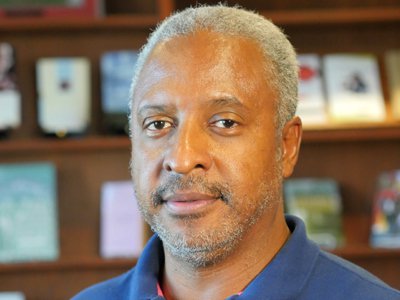A Conversation with Kwame Dixon
Professor Dixon reflects on the changing landscape of Latin American culture and politics

Kwame Dixon, assistant professor of African American studies in the College of Arts and Sciences, has been fascinated by the changing cultural landscape of Latin America since his first trip to Nicaragua over 30 years ago.
“I had planned to visit for only two weeks, but I was seeing amazing experiments in democracy unfolding before my eyes. I ended up staying a month and a half,” says Dixon, who also has a courtesy appointment in the Maxwell School of Citizenship and Public Affairs.
Dixon’s research at Syracuse University focuses on social exclusion (racial and gender discrimination) in the context of international human rights, democracy and conflict resolution. His research on Latin America and the Caribbean examines how racialization and gender and other forms of social discrimination lead to human rights violations against at-risk populations.
After the March 2016 release of his most recent book, “Afro-Politics and Civil Society in Salvador da Bahia” (University Press of Florida, 2016), Dixon was invited to spend a few weeks as a visiting fellow at the Université Paris-Sorbonne.
While in France, Dixon spent time working with graduate students in the university’s anthropology and sociology departments sharing his own interdisciplinary research.
“What was interesting, was working with some of the students at the Sorbonne—it really showed off the vibrancy of the field,” says Dixon. “I got to see some of the wonderful research that is happening at other universities in respect to Latin America and the Caribbean studies, which is similarly cutting-edge like the work that is being done here at Maxwell and the College of Arts and Sciences.”
In the video below, Professor Dixon reflects on his first trip to the eastern coast of Nicaragua during the Sandinista Revolution, as well as how the cultural and political systems of many Latin American countries have become more progressive over the past several decades.
